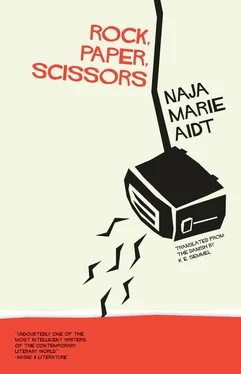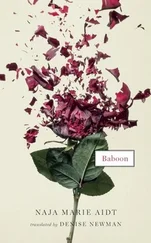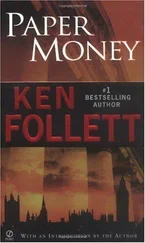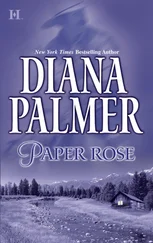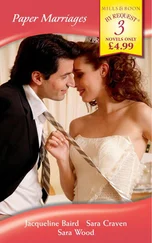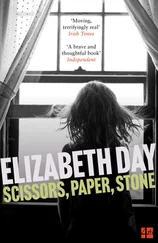“I mean The Idiot .”
“What about it?”
“It’s long.” Annie stared at him, confused. “And longwinded.”
“I don’t think so. You’ve just got to have a little patience. I’m in the middle of the second volume. I’ve decided to read all the Russian classics. I read Anna Karenina in the fall, and after I’m done with this one, I’m going to move on to The Brothers Karamazov .”
She spoke eagerly now, and rapidly. “I’m trading books with a friend. It’s cheaper that way, and then we read the same books so that we can talk about them — I mean discuss them and all that. We meet every Thursday.”
“I just can’t stand the paper quality in paperbacks. Look at how the pages are fraying along the edge. It hurts my hands to touch them.”
“It hurts your hands?”
“Yes, it does. I can’t stand them.”
“Not everyone can afford to buy first editions.”
“Then go to the library.”
“But then you don’t own the books.”
“No.”
There was a loud noise somewhere in the back of the store. The visual artist had knocked over a stack of boxes filled with cheap ballpoint pens. She’d wanted something behind the boxes, and they’d all tumbled down. Thomas sighed, composing himself.
“Can I help you with something?”
“I wanted to look at the paper dolls.”
“All right,” Thomas said, sticking his hand in and pulling out a couple sheets of paper. “Perhaps you need something like this for a collage?”
“Absolutely not!” Then she clapped shut like an oyster. But a few minutes later she left the store with thirty sheets of various paper dolls, rolled together and bound with string.
“What’s she going to do with them? That’s kind of weird,” Annie mumbled, her attention once again fixed on The Idiot . Thomas hissed, “Fuck that artist bitch,” and restacked the boxes before heading down to the basement. He told Peter that it wasn’t very smart putting large sheets of cardboard behind small boxes of ballpoint pens. How are the customers supposed to get to the sheets? Maloney shouted, “Did you get it all out of your system?” And Thomas clenched his fists again. He responded coolly, glancing at the stacks of broken-down cardboard boxes, “I thought you were doing inventory. But apparently not.”
Crunching his last chicken wing between his teeth, he imagines the visual artist playing with the paper dolls. Maybe she’s not even an artist. Maybe she’s insane. His anger only dissipated as he walked around the store, alone, after closing time. At first it transformed into grief, just briefly, and then into silence, or rather, the silence pervaded him. The silence filled me with peace, he thinks, the silence was so calming that my anger became silence. I shouldn’t have acted so immature, but it’s too late now. A fat man and his equally fat daughter climb onto two recently vacated barstools. The girl glances at him, her eyes glinting, her mouth open. Her father tugs on her arm and says something in a harsh tone of voice. The girl stares despondently at her knees. Thomas gives the man a dirty look and slaps his money down beside his empty plates, then hurries out into the bustling May evening. The sky’s beginning to darken and several frayed, hazy clouds, blue-black and violet, glide ungodly slow over the city. He checks his cell phone: another unanswered call from Jenny. Since the funeral, he simply hasn’t felt like talking to her, though she’s tried to call him several times a week. Patricia says that she left a voicemail at the museum, crying and incoherent, and that Patricia then tried unsuccessfully to get a hold of her. Patricia suggested Thomas be the one to call. “It’s your sister, after all, not mine.” He finds a bench, lights a cigarette, and taps Jenny’s number. She picks up at once. She says nothing for a moment, then yells at him.
“After the funeral I had to handle everything myself, and you didn’t even text me!”
Thomas asks, “What do you mean, ‘everything?’”
“I mean everything , of course.”
She tells him, more coherently, about Alice’s move and the loneliness she now endures, the meaninglessness of daily life, her sleepless nights. “Now I’m all alone in the world, no father, mother, or daughter. Why should I go on living? What reason is there?” she says. “I might as well hang myself.”
“Jenny, Alice is alive and well, and I’m here, and Patricia and Kristin and Helena. You do have family, plenty of family, you just need to get used to the fact that she doesn’t live at home anymore.”
“But no one calls me.”
“I’m calling you now.”
“Only because I called you. Just admit it. And I don’t want to talk about it. Not another word. I can’t stand it.”
A pause. Jenny sighs. “We’re not going anywhere, Thomas. We’re always standing still. Always. Always. We’re treading water, it’s pathetic.”
Jenny groans. With his foot Thomas nudges a curled cardboard cup. It rolls beneath the bench. He pushes it out with the toe of his shoe.
“Do you want to come hear Ernesto play tonight?”
“God no.”
“I’m going to the show. Alice stopped by today.”
Jenny becomes frantic. “How did she look? Is she eating? Has she lost weight?”
“She looked well.”
“Did she seem depressed?”
“Nah. She was in a great mood.” A pause. Jenny composes herself. “Good,” she says. “That she’s doing well. Now I just hope she finds a job. I can’t support her financially on my meager salary.”
Thomas tells her he’ll say hello to Alice for her, and Jenny grudgingly agrees to let him. She says that Kristin called to invite them up on Friday, they can spend the night in the barn and have a “summer fest,” and we need to go. We owe it to them.
“Did you know Dad read poetry?”
“What?”
“Poetry. He read poetry.”
“That’s nonsense! Who says that? He never owned a book.”
“Luc, the one behind the bar at Frank’s. Apparently taught Luc how to fish, too.”
“Who says that?”
“Alice.”
Silence. Jenny breathes. She presses her mouth against the telephone, and hurls her voice hoarsely right into his ear: “I remember how sometimes a boy was with him when I visited. A thin, red-haired boy. But that was many years ago.”
“Frank says he was very close to Dad.”
“Ha! Dad wasn’t close to anyone.”
“That doesn’t mean Luc wasn’t close to him. You were too.”
“And so were you , Thomas. So are you. You can’t run away from that. Neither one of us can.”
Thomas flicks his cigarette away. “Speak for yourself.”
Jenny pretends not to hear him. “Maybe he read in prison. What else would he do? There’d be plenty of time to read quite a lot of poetry during all the years he was locked up, I guess. Imagine him reading poetry in prison. That’s a nice thought, Thomas, isn’t it? Yes, it is. It’s a nice image, I think we should hold onto it.” And it’s as though he can sense her close her eyes in her kitchen, where she’s no doubt sitting in one corner, on one of the tattered, varnished chairs. She’s closing her eyes and imagining her father absorbed in a book, every now and then raising his face, a stanza on his lips, as if he just needs to taste it one more time, take it in, understand it, feel the words. Thomas sees it just as clearly, and he pushes the image away in disgust, away from his consciousness, rejects it, because what the hell is that, it’s like he’s absorbing her made-up image, like she planted that in his head, overtaking an untrue, romantic image like fucking telepathy .
“Hmm, yes,” Jenny says dreamily, now mild and peaceful, now it’s time to say goodbye, and Thomas focuses on the fact that Jenny is ready. As always, they have to go through various phases before Jenny’s well enough to say goodbye; she has to feel markedly better than she did before the conversation began. A whole lot of tiny posts need to be in balance so that Jenny can stand suddenly upright, surprisingly strong. Thomas says goodbye and hangs up, then sits there, his mind inert and scattered, looking at small groups of enthusiastic youths going out for a night on the town, dog walkers, and well-dressed men and women returning late, no doubt from the numerous office buildings in the northern part of the city. It smells like spring here. A little garbage, a little wind, a little warmth, something that whirls up, as if from the underground, something invisible, fragrant. The chestnut trees have long since blossomed and faded, so quickly; he suddenly remembers the sight of their almost vulgar swollen buds when he sat in Kristin’s car on the way to Café Rose. Now they’re gone. Now there are only dense, rustling treetops, fat green leaves. A rat runs beneath the bench right behind his feet. The cardboard cup skitters. He stands up and decides to walk the rest of the way. Jenny has sucked something out of him, but he doesn’t know what. Left a hole in his brain, an empty spot.
Читать дальше
